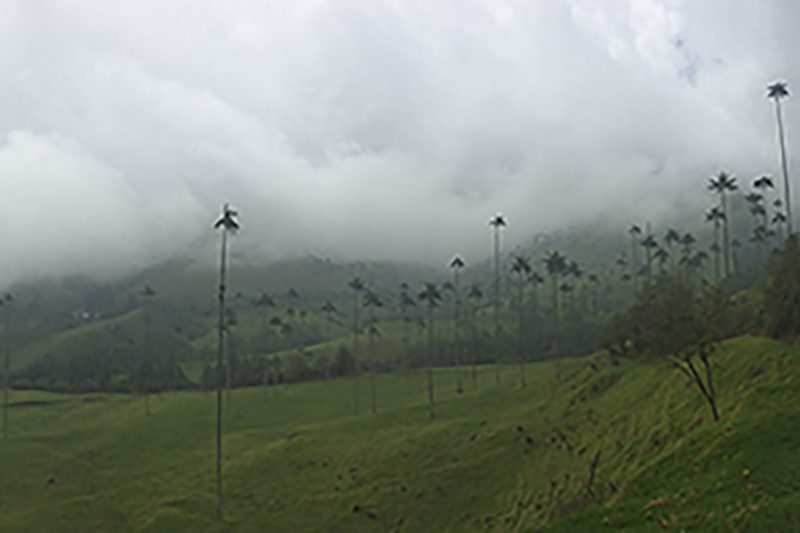Pictured above: Cocora Valley in the Colombian coffee region
I first visited Colombia more than three years ago. Although it was a short visit, I still recall a country different from the one it is today. After almost four years of peace negotiations, it finally seems like one of the world’s longest running conflicts is coming to an end.
Despite Colombia’s economic and social progress during the last few years, the conflict has created 6.8 million internally displaced persons (IDP), one of the world’s largest populations of IDPs, second only to Syria. It has also left an estimated total of 8 million victims wounded, displaced, kidnapped or killed.
So far, the government of Colombia and the Revolutionary Armed Forces of Colombia (FARC-EP) have agreed on 4 out of 6 points contained in the General Agreement for the Termination of the Conflict. Once they sign the final accord, Colombians will have the option to vote either yes or no to the agreement with a plebiscite. The outcome of the plebiscite is yet to be seen, but there are reports of a technical tie between the two positions at this particular moment.
Regardless of the result, the United Nations in Colombia has been actively working to establish implementation mechanisms for the post conflict setting, as well as to advance the 2030 Agenda for Sustainable Development in the country. Throughout my internship at the UN Resident Coordinator’s Office, I have analyzed the opportunities that the post-conflict scenario provides to advance the implementation of the Sustainable Development Goals (SDGs) and to achieve a durable peace in Colombia. I have been fortunate to meet with different officers from the UN and the government of Colombia and learn first-hand about important development and peace building initiatives. One of the most gratifying experiences of my internship has been my participation in a working group established to provide technical cooperation to the Department of Statistics of Colombia vis-à-vis SDG indicator implementation. I have been very lucky to meet members of several UN agencies, including those working for the UN Political Mission to monitor and verify the laying down of arms. Their stories of assignments in South Sudan, Afghanistan, Syria, Haiti and Colombia have reassured me that humanitarianism drives people to improve lives, alleviate suffering and promote human rights.
However, the most rewarding experiences during my time in Colombia have been those spent traveling around the country, seeing amazing landscapes, and meeting incredible friends, old and new. I truly hope that peace and reconciliation can come to Colombia, a country that shares so many cultural and social characteristics with my own country (Mexico), and which has made me feel very much at home.
